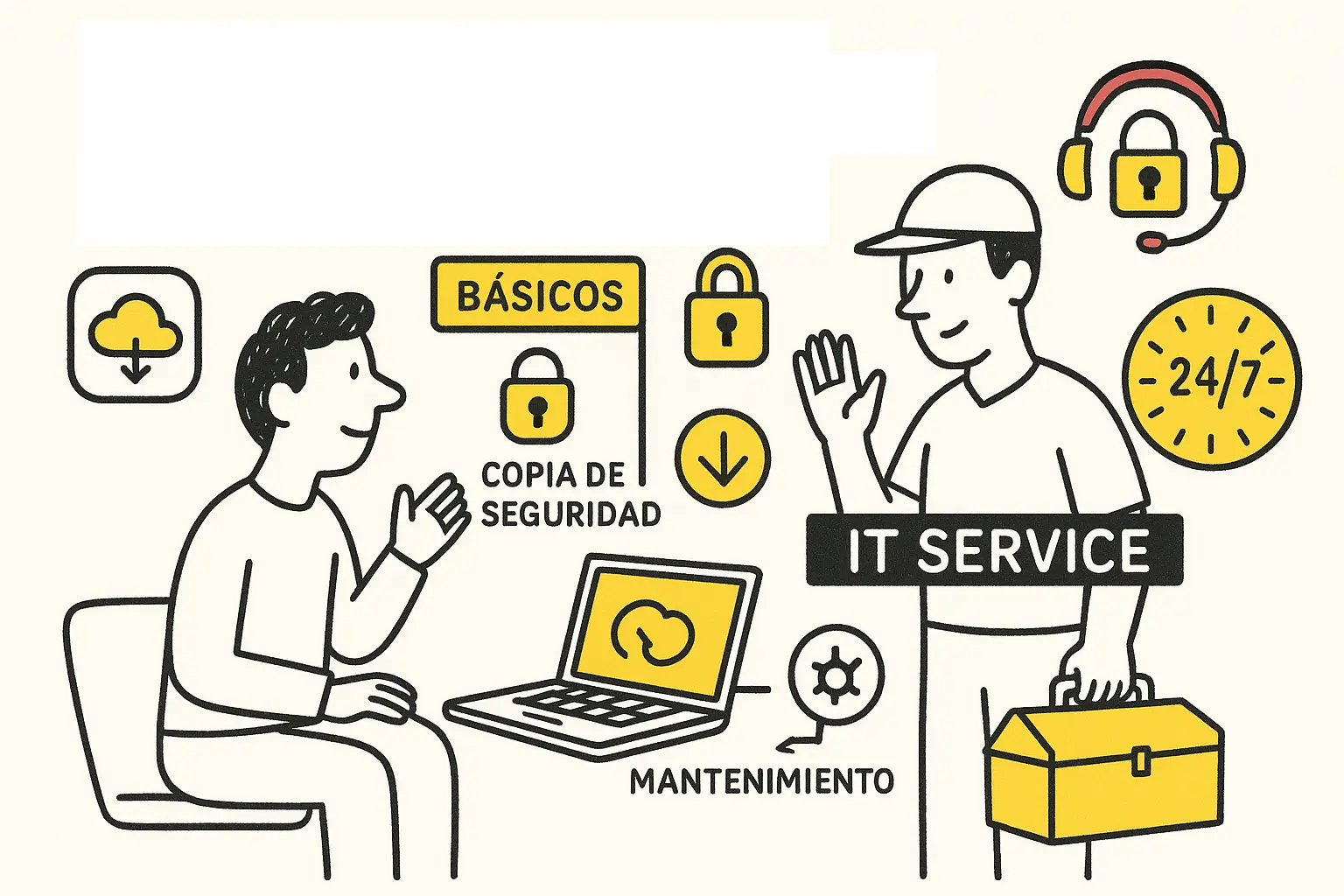With the current digital revolution taking place within organisations, efficient information management and IT system security are key pillars for any company’s success. In this context, systems auditing emerges as an essential tool for evaluating and enhancing a company’s technological performance, ensuring that the IT infrastructure is secure, efficient, and aligned with business goals.
A systems audit allows companies to identify vulnerabilities, assess regulatory compliance, and optimise their IT processes. This is crucial in an environment where cyber threats and technological complexity are constantly evolving.
What does a systems audit involve?
A systems audit consists of reviewing and evaluating the processes, IT equipment, and software used within a company. For the audit to be effective, it is essential to follow a well-structured methodology that ensures a thorough analysis of IT systems. These are the main steps involved:
1. Preliminary research
Before starting the audit, it is essential to conduct detailed research to gain a clear understanding of the company’s current technological infrastructure. This includes:
- Identification of key systems and processes.
- Analysis of existing documentation.
- Assessment of implemented security protocols.
2. Detailed planning
In this phase, the specific objectives of the audit are established and the scope of work is defined. Aspects to consider include:
- Identification of critical areas within the IT infrastructure.
- Determination of potential risks.
- Definition of performance and security indicators.
3. System evaluation and analysis
During the audit, systems and processes are thoroughly examined through:
- Security and penetration testing.
- Evaluation of hardware and software performance.
- Review of access and permissions management.
4. Collaboration with company staff
To ensure the success of the audit, it is crucial to have the cooperation of the IT department and other relevant teams. This enables access to key information regarding system use and potential internal issues.
5. Recommendations and improvement plan
Following the evaluation, specific recommendations are presented to optimise the security and efficiency of the systems. Some suggested actions may include:
- Implementation of advanced cybersecurity solutions.
- Upgrading and maintaining hardware and software.
- Improving staff training in IT security best practices.
Benefits of a systems audit
Carrying out regular systems audits provides numerous benefits for businesses, such as:
- Enhanced security: Identifying vulnerabilities and strengthening protection against cyber threats.
- Regulatory compliance: Ensures the company adheres to regulations such as GDPR, ISO 27001 and other security standards.
- Resource optimisation: Identifying inefficiencies in hardware and software usage, reducing unnecessary costs.
- Business continuity: Implementing strategies to prevent failures and ensure systems availability.
IMHO Inmove IT Solutions: Experts in systems audits
At IMHO Inmove IT Solutions, we specialise in systems audits, offering comprehensive solutions to enhance the security and efficiency of business IT infrastructures. Our team of certified professionals, accredited by leading vendors such as HP, Cisco, Microsoft, GNU/Linux and VMware, guarantees in-depth analysis and tailored recommendations for each business.
How often should a systems audit be performed?
It depends on the sector and the level of digitalisation. Generally, it is recommended at least once a year or after major changes in the IT infrastructure.
Is a systems audit mandatory for regulatory compliance?
In some sectors, yes. For example, companies handling sensitive data must comply with standards such as GDPR or ISO 27001, which require regular audits.
What happens if I don’t perform systems audits?
Companies that do not audit their systems may be exposed to security risks, inefficiencies in processes and regulatory penalties.
How much does a systems audit cost?
The cost varies depending on the size of the company and the complexity of the systems. Contact IMHO Inmove IT Solutions to receive a tailored quote.
What do we offer?
- Expert technical team: ICT specialists who ensure systems operability and information security.
- Rigorous control: Detailed evaluations to ensure business continuity.
- Tailored solutions: Adapted to each company’s specific needs, from SMEs to large organisations.
If you need to audit your company’s systems to improve their security and efficiency, contact us today. At IMHO Inmove IT Solutions, we offer a comprehensive solution so you can focus on your business while we take care of your IT management with full guarantees.




